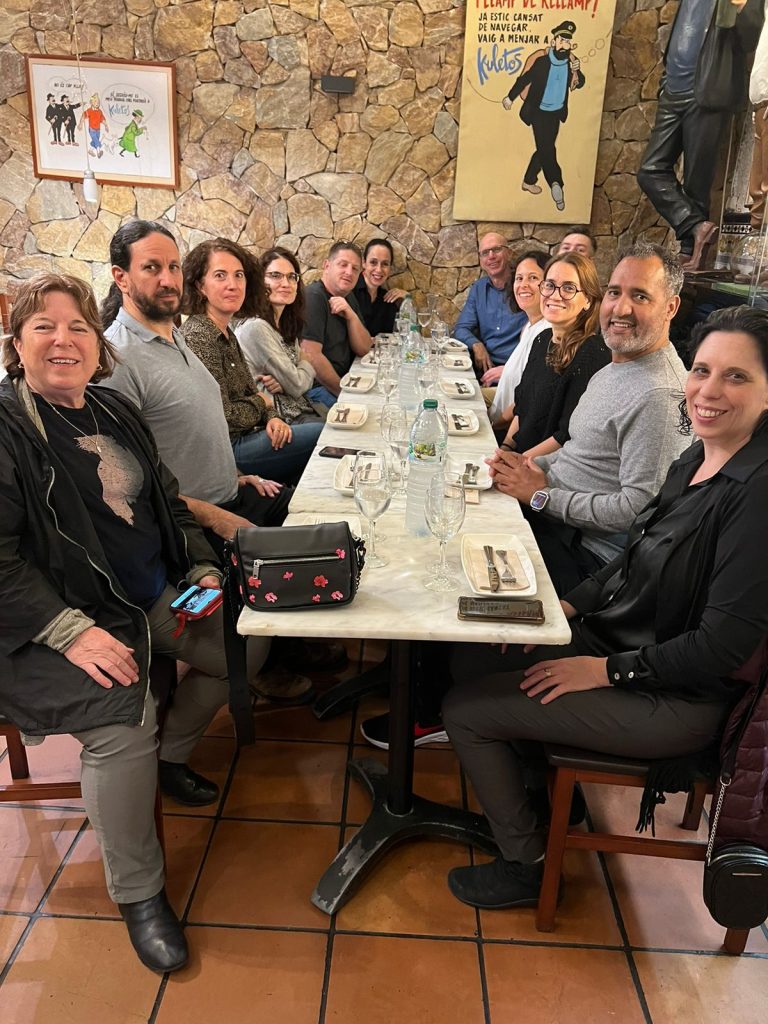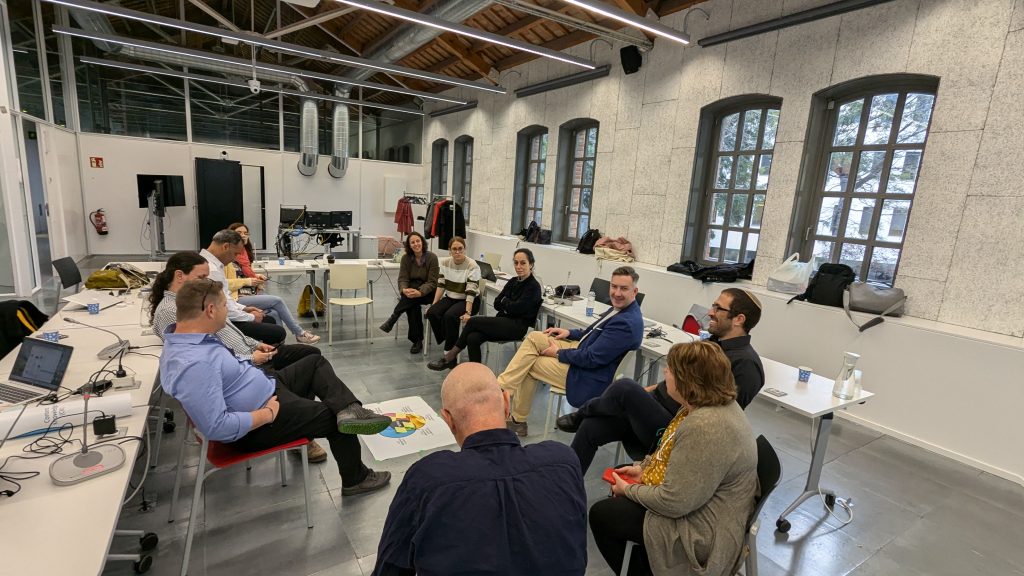From November 28 to November 30, 2024, the VOLCANIC Erasmus+ project held its second consortium meeting in Barcelona.
Hosted by the Universitat Pompeu Fabra in Barcelona, this gathering brought together representatives from five participating countries: Israel, Morocco, Poland, Portugal, and Spain. The main focus was on advancing our mission to empower educators from Morocco and Israel to bring ICT integration into classrooms in underserved communities.
Our discussions focused on the barriers educators face in disadvantaged populations in Morocco and Israel, particularly around language, cultural openness, and ethical concerns. During the meetings, we had the opportunity to share our experiences and different perspectives on teaching with technological tools within the communities that the project serves.
One of the key topics raised was the challenge of integrating technology in cultural contexts, especially where there are norms around privacy and limited online presence. The ethical problems of exposing populations that are used to staying hidden to these new digital tools were also highlighted.
In the context of integrating technologies such as GenAI, the language barrier emerged as a significant issue. Effective use of AI tools often requires proficiency in written English or Arabic, which poses challenges in multilingual environments. We also discussed the complexities arising from the differences between spoken and written Arabic, and how these differences further complicate the adoption of AI in educational contexts. Finding ways to navigate these hurdles is crucial to ensure equitable technology integration.
The second consortium meeting in Barcelona was a testament to the strength of our collaborative efforts. It is inspiring to see educators and higher education staff working together to empower communities through digital skills, ultimately bringing meaningful change to classrooms and improving educational opportunities for all. Here’s to another year of growth, innovation, and creating new pathways to bridge educational divides.
Starting from November 2024 (the beginning of the current academic year), partners from Morocco and Israel are beginning to implement specially designed courses for the Bedouin population in Israel and geographically remote populations in Morocco.
The upcoming courses, are expected to not only address existing barriers but also provide valuable insights that will guide further efforts to create effective and culturally responsive educational technologies.



